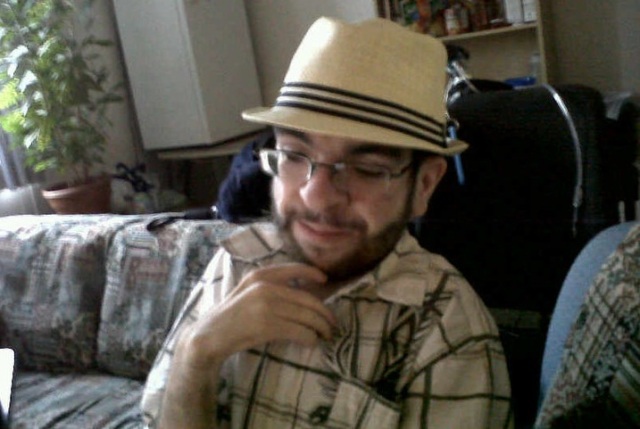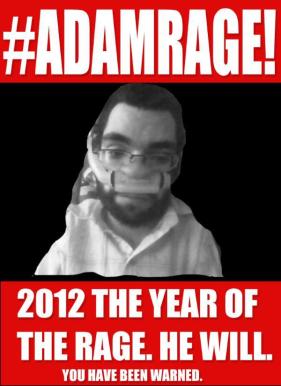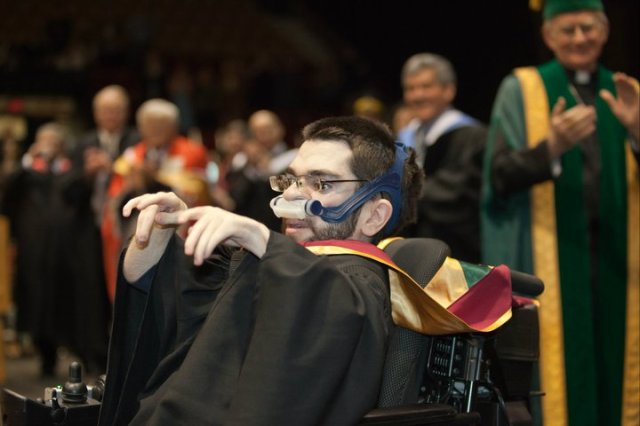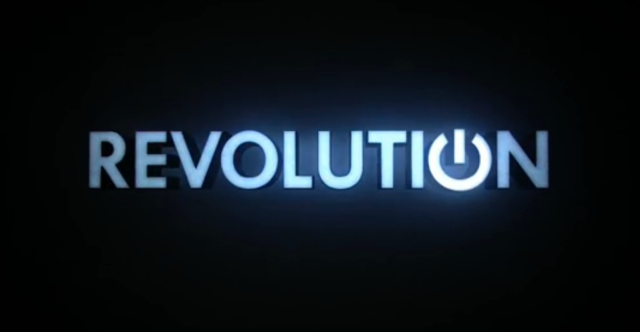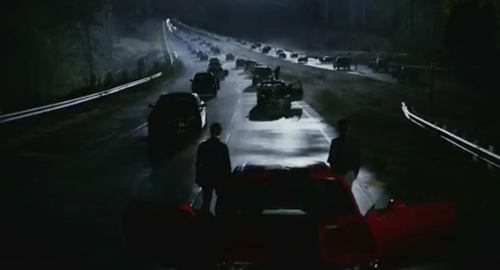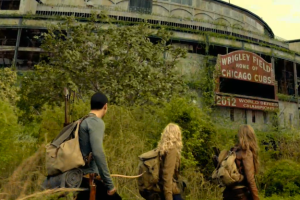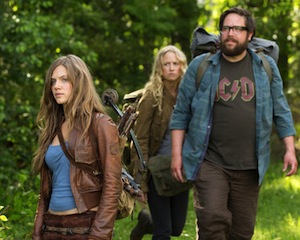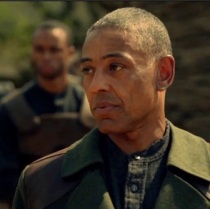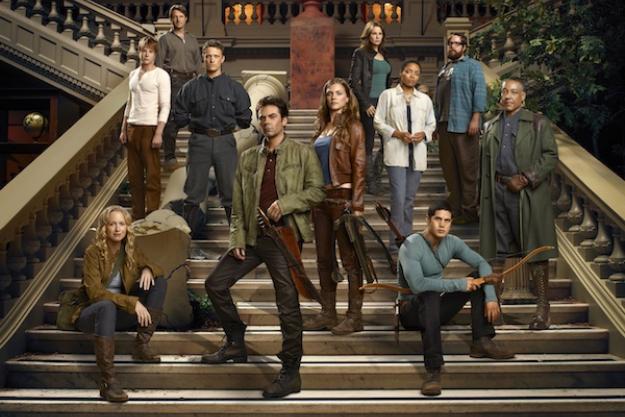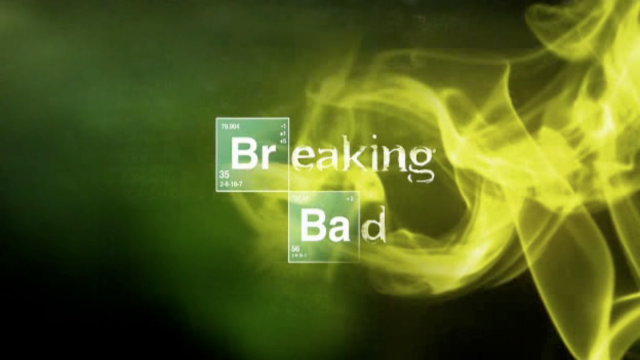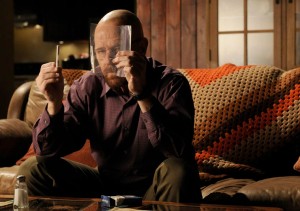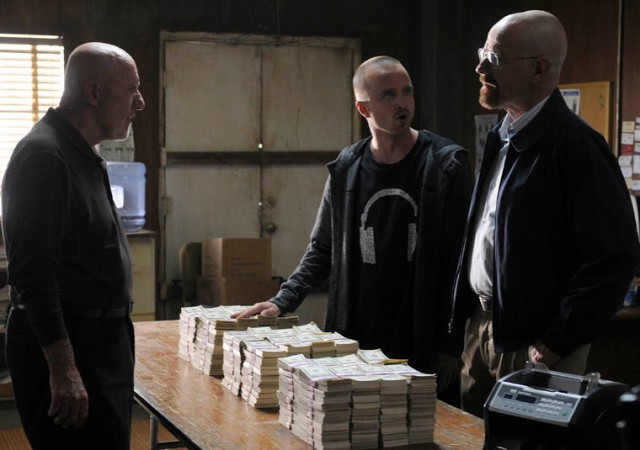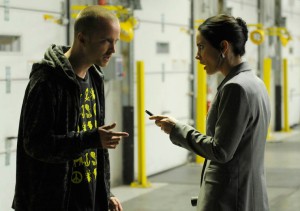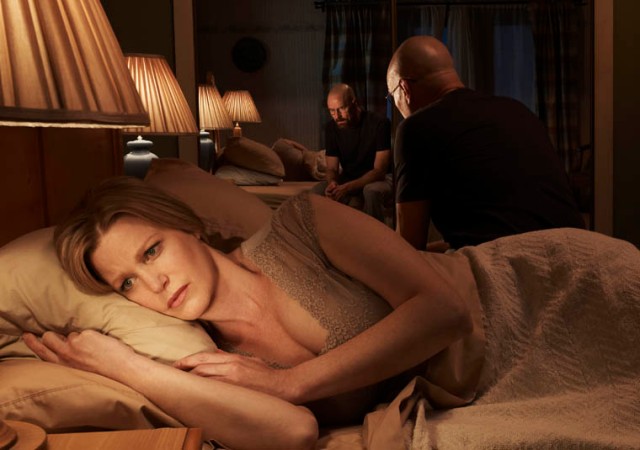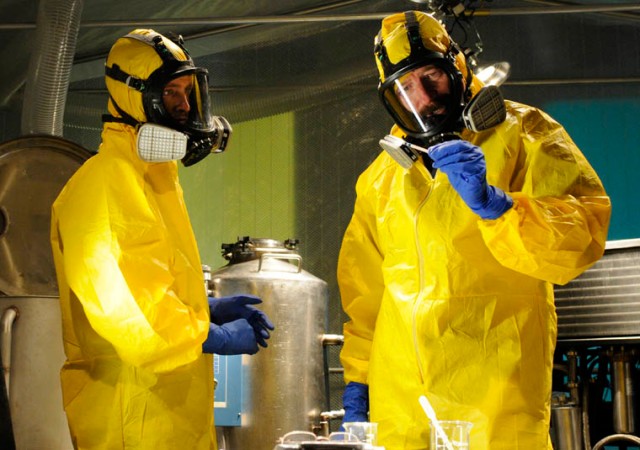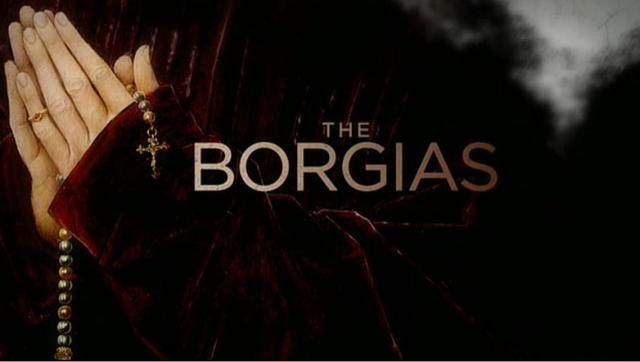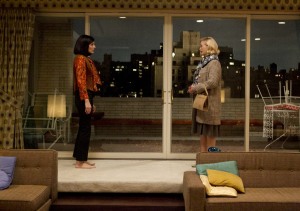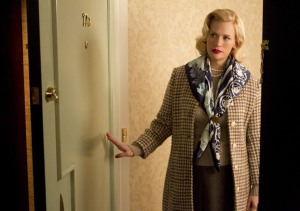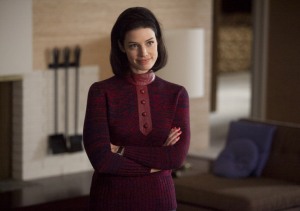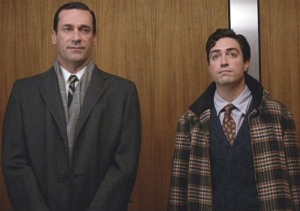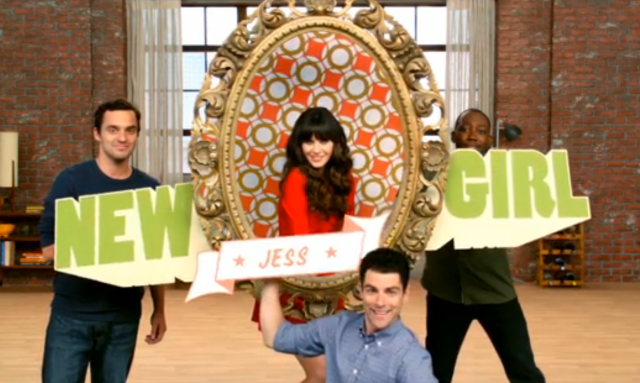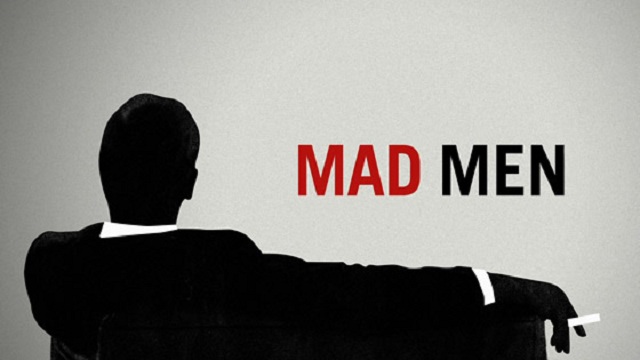
Two episodes left in what’s been a hell of a run for Mad Men this season. We’ve seen agency fortunes rise and fall, we’ve seen acid trips and fisticuffs, split narratives and unstuck timelines, guest appearances from Leland Palmer, Alex Mack, Mr. Belding and Rory Gilmore. For a show that a lot of people (the Barker Chappell Daglas agency included) have chastised for being less than subtle this year in its messages, it certainly hasn’t offset the overall quality of what is commonly considered the greatest show on television.
And in Mad Men fashion they’re saving the big guns for last, as last Sunday’s “Commissions and Fees” finally brought resolution to the season’s very heavy foreshadowing. Cory Barker, Andy Daglas and I are here to break down the penultimate episode of Mad Men season five. To reassure you beforehand, please note that none of the three partners in BCD are in dire financial straits at this time, so don’t worry about us huffing carbon monoxide in a Jaguar by the end of this discussion. (And also please note that would you like to contract our services after the season wraps, this agency operates on straight commission but will negotiate fee structures if the terms are acceptable.)
Let’s negotiate our “Commissions and Fees”:
Les: Traditionally, Mad Men‘s penultimate episodes are the ones where the season’s most earth-shattering moments happen. In season one, we learned the truth of who Dick Whitman really was, and the circumstances by which he came to become Don Draper. Season two saw Sterling Cooper sold to the British (the first major firm decision made with Don in absentia and the most recent of which came last week) and the reveal of Anna Draper’s existence. Season three was the Kennedy assassination and the collapse of the Draper marriage, which finally came down once Betty learned the truth. Season four was the gutting of SCDP after Lucky Strike’s abandonment of the firm and Don’s subsequent letter to the New York Times, a move that gave the company considerable press but poisoned the well in the long run (as Ed Baxter pointed out a few episodes ago and reminded us of again tonight).
Season five’s penultimate “Commissions and Fees?” No different. The death pool we’ve been speculating on all season, and which I was coming very close to writing off as a season’s worth of misdirection, finally yielded results.
And the final “winner?” Lane Pryce. His forgery of a few weeks ago finally came to light through the meddling of Bert Cooper, and Don – intractable to the last on so many things – tells Lane that he has to accept his resignation because he can never trust him again. Don tries to phrase it in the best of terms, offering it as a chance for Lane to restart his life in Dick Whitmanesque fashion, but Lane’s stiff upper lip nature can’t even allow for the possibility. He stares out the window at the falling snow, throws up at the sight of the Jaguar Rebecca bought him, and after a sleepless night comes to terms with what he thinks needs to be done.
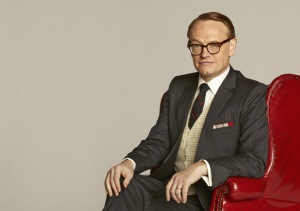 I called Lane as the leading death pool candidate back when we discussed “Christmas Waltz,” but I take no pleasure in knowing I was right. We’ve had qualms with the Lane stories this season, but this was a gut-punch of a reveal to me personally, as I’ve always liked Lane as a character and became a Jared Harris fan because of what he did on this show. I thought it was coming from the moment Scarlett said that Lane’s office was locked, but the gradual realization of it – and the dark inverse of Peggy’s peeping from “The Rejected” used to reveal the truth to Pete and company – was done in devastating fashion. The look on Don, Roger and Pete’s faces as they saw what he’d done and subsequently cut him down was tragic, especially to those of us who thought any of them could go the same route this season. And poor, pathetic Lane, thwarted to the last – his more dignified approach of suffocating himself with the exhaust of the Jaguar he fought so hard to bring to the agency was thwarted by the car’s shoddy workmanship, and his symbolic spectacle breaking ruined as he had to hold one up to examine the car and tape them together to return to the agency for his Plan B.
I called Lane as the leading death pool candidate back when we discussed “Christmas Waltz,” but I take no pleasure in knowing I was right. We’ve had qualms with the Lane stories this season, but this was a gut-punch of a reveal to me personally, as I’ve always liked Lane as a character and became a Jared Harris fan because of what he did on this show. I thought it was coming from the moment Scarlett said that Lane’s office was locked, but the gradual realization of it – and the dark inverse of Peggy’s peeping from “The Rejected” used to reveal the truth to Pete and company – was done in devastating fashion. The look on Don, Roger and Pete’s faces as they saw what he’d done and subsequently cut him down was tragic, especially to those of us who thought any of them could go the same route this season. And poor, pathetic Lane, thwarted to the last – his more dignified approach of suffocating himself with the exhaust of the Jaguar he fought so hard to bring to the agency was thwarted by the car’s shoddy workmanship, and his symbolic spectacle breaking ruined as he had to hold one up to examine the car and tape them together to return to the agency for his Plan B.
Cory, Andy, how did you feel about Mr. Pryce’s resignation? Did it hit you as much as me?
Cory: This season of Mad Men keeps throwing one massive event after another at me, and I wish I felt better about them. Much like with last week’s episode, “Commissions and Fees” features a slew of powerful moments, but also struggles to remove the hand of the writers in those moments. Clearly, I realize that every episode of television is written (well, except for Smash) and that the characters are not real people. However, a handful of great moments from this season of Men have been undermined by the very visible orchestrating done by the writing staff. Last week, I had trouble swallowing Joan’s choice and this week, the circumstances of Lane’s suicide and the surrounding events didn’t go down too easy either.
On one hand, Lane’s death makes a lot of sense. We’ve been discussing deaths, well, to death, and it became pretty clear that he was our prevailing candidate to bite the bullet. Similarly, I quite liked Jared Harris’ performance in every scene in “Commissions and Fees,” especially the one where Lane tried to make it all end in his new car. And obviously, that final sequence with Don, Pete and Roger pulling his body down and processing the events was one of the most evocative, disturbing and memorable bits in the series’ run. All of that stuff was great.
Nevertheless, two issues remain for me. The first is related to how convenient a lot of this ended up being. Lane’s wife buying him the car was a manipulative stroke, the bits about “life and death” related to Sally’s first period had me rolling my eyes and Glen’s dejected rant to Don in the elevator simply laid the episode’s/season’s/series’ theme on WAY too thick. Mad Men isn’t shy when it wants to spell things out for the audience, but goodness Andre and Maria Jacquemetton took it a step too far. I don’t need to be beat over the head, especially by creepy Glen. The other issue I have with Lane’s death is that I’m not really sure why it had to happen. As we’ve said before, Mad Men isn’t a story where people must die, but this season it seems like everything was leading to a major one because, well, because. We certainly bought into that idea hard here in the roundtable, but now that I’ve seen Lane’s miserable story play out, I’m not sure it was really worth it. Which is likely part of the point, but still.
So again, here I am, my emotions wrecked by an event but my mind questioning its logic. Andy, your thoughts?
Andy: I guess that makes me the stone-hearted monster of the group this week. I too like Jared Harris as an actor, and think the nuances he’s brought to the role of Lane Pryce have elevated it above its consistently thin and sometimes disjointed writing. But I’ve never had much of an emotional reaction to him one way or another, so his death doesn’t resonate at all. Even when it became obvious where the episode was heading, I didn’t respond on a gut level until the moment when Joan attempts to enter his office. There was power in her reaction, and in Don’s and Roger’s and Pete’s. I’ll be interested to see how the fallout impacts them in the finale (and perhaps next season, depending on the time jump). As for Lane himself, can anyone really say they’ll miss having the character in the roster?
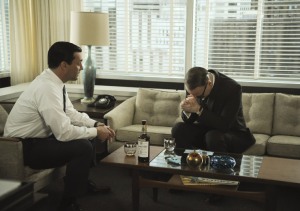 Not to claim divine knowledge of the Will of Matthew Weiner or nothing, but doesn’t it feel like the writers felt the same way on both counts? Of the “major” characters, Lane was easily the most poorly integrated with the rest of the core. They seldom knew what to do with him, so why not get rid of him. And hey, if you can do it in a way that accelerates the onrushing darkness and throws everyone else through another wringer, you’ve gotta do it.
Not to claim divine knowledge of the Will of Matthew Weiner or nothing, but doesn’t it feel like the writers felt the same way on both counts? Of the “major” characters, Lane was easily the most poorly integrated with the rest of the core. They seldom knew what to do with him, so why not get rid of him. And hey, if you can do it in a way that accelerates the onrushing darkness and throws everyone else through another wringer, you’ve gotta do it.
It felt mechanical from start to finish, doubling down on the creakiness of the forgery plot that started us on this road. Is suicide plausible for Lane was we know him? It’s a petty, selfish, cowardly, and excessive act – so yes, absolutely. But under these circumstances? The tearful resentment he lobbed at Don was understandable and sincere, but with even an iota of reflection (and even Mad Men characters are capable of that much), he’s hardly in dire straits. Frankly, all things considered, Don handled Lane’s dismissal like a champ. A dignified resignation and a decent pecuniary cushion are more than enough for him to, as Don recommends, “start over.”
The whole thing irritates me deeply. I ask again, in the wake of what feels like a very cavalier decision to dispose of a disposable character – and not by packing him off to the Coast with a pocketful of Harry Crane’s cash, either – how dark can Mad Men go for seemingly the hell of it?
Plenty of other dark shit happened this week, of course, much of which I enjoyed somewhat more, but I’ll stop here for the moment. Cory, you brought up the very-active-this-week Glen – Les, how do you feel about Matthew Weiner sending forth his son to delivereth his message unto the masses?
Les: Oh, ugh. Glen Bishop’s a character I’ve never cared for in the slightest – his creepy attachment to Betty in the earlier seasons was a part of episodes I completely tuned out of, and I think the focus on that relationship poisoned the well of Betty as a character very early on. I was slightly more tolerant of his inclusion as time went on when he became friends with Sally, but that was only because it gave Kiernan Shipka a chance to interact with a non-parental figure, and I’d’ve been perfectly happy if his family moved away and never came back. And the writers seem to know that too – the instance where Don draws a blank on who he is and Glen has to spell it out was rather funny in its blatant attempt to remind us who this character was and why he mattered.
 Come to think of it, “blatant” is the best word for how the character was used in this episode. We keep talking about the show being on-the-nose this season, but that last line of his to Don in the elevator about everything turns out crappy was blunt force trauma after the quietly unfolding heartbreak of what happened to Lane in the office. It wasn’t even that it was direct, but it was completely unnecessary to the message of the episode, only serving to give Don a distraction so he didn’t have to tell Megan what he’d seen at the office for a few more hours. And going back to his day trip with Sally at the art museum, that now feels like it deprived us of an afternoon that could have been spent with Megan and Sally and Megan’s redheaded friend spending the day together, a story that could have further complicated Don and Megan’s relationship had Sally gotten her period then and Megan’s forced to be more of an actual mother to her than she’s ever been. Instead, no, just a scene of Glen making random comments about Roosevelt killing all the animals in a museum and getting Megan to make him dinner.
Come to think of it, “blatant” is the best word for how the character was used in this episode. We keep talking about the show being on-the-nose this season, but that last line of his to Don in the elevator about everything turns out crappy was blunt force trauma after the quietly unfolding heartbreak of what happened to Lane in the office. It wasn’t even that it was direct, but it was completely unnecessary to the message of the episode, only serving to give Don a distraction so he didn’t have to tell Megan what he’d seen at the office for a few more hours. And going back to his day trip with Sally at the art museum, that now feels like it deprived us of an afternoon that could have been spent with Megan and Sally and Megan’s redheaded friend spending the day together, a story that could have further complicated Don and Megan’s relationship had Sally gotten her period then and Megan’s forced to be more of an actual mother to her than she’s ever been. Instead, no, just a scene of Glen making random comments about Roosevelt killing all the animals in a museum and getting Megan to make him dinner.
It was so annoying I don’t even feel like talking about it anymore, so let’s go back to the issue of Lane’s death. I’ve been thinking a lot about it since it happened, and I think that the problem is similar to a lot of our problems with Joan’s decision last week: it feels like they chose an objective for the character ahead of time and then wrote back to it, so you can see the strings worse than in the Wonder Woman pilot’s fight scenes. I don’t find it implausible that Lane would do this – he’s been established as a man who’s been beaten down (literally in some cases) by his father’s influence, a meaningless cog to St. John Powell and PPL, and always something of an outsider to his American compatriots. But his particular woes – feeling meaningless to the agency, increasingly financially strained – only came in at intervals this season, came out of nowhere, and they were always secondary to the plots surrounding the three men who eventually cut him down.
So, this is now two weeks in a row where Mad Men‘s made some very big, life-altering decisions for its characters, where the means to get there was certainly clunky but the results in both cases were (at least to me) heartbreaking and fantastically acted. My question is: do you feel the results outweigh the process?
Cory: I’ve enjoy Glen precisely because he’s a creeper, just as his relationship with Sally has been quite entertaining to watch because it makes me so uncomfortable. I think I would have liked that portion of the episode much better had it not been part of this specific episode. Again, the whole life/death symmetry was slightly clunky, but their conversations are perfectly awkward and stiff.* Glen somewhat frustratingly describing the hassle it would take to visit Sally in NYC was charming in a super-weird, inappropriate dirty mustache kind of way. And truthfully, Sally rushing home to Betty gave Mrs. Francis (and January Jones) a nice moment or two of real emoting. As a separate entity, that story worked. But the loosey-goosey nature of that story clanked against the manufactured slog towards Lane’s suicide. Not the finest editing in the series’ history, that’s for sure.
*It’s unclear to me if these conversations are so stiff because Weiner’s kid cannot act, because of the writing or both. I do know that I hate Weiner even more for giving his son major burn in such an important episode. That dude is such a life troll.
Les, I guess you’re right in some ways: Sure, it is logical that Lane as we’ve grown to know him would do this. He’s a character that constantly gives and anytime he tries to take, things end up going poorly. And recent episodes have certainly pushed him further into a corner. But I can’t let go of the feeling that this was all for naught. This season, even above all others, is one of misery and the easiest way to keep ratcheting up said misery is death. Moments into this episode, I was resigned to Lane killing himself and despite the quality work of Harris, Hamm, Slattery and company in those final moments of his life and initial moments of his death, I didn’t care that much, nor did I really see the point.
Perhaps this leads me perfectly to an attempted answer to your question. I think the jury is still out if the “results” are worth it. I don’t see Lane’s death impacting any individual characters other than Joan and Don, and if you take the events of the last two episodes together, it seems relatively clear that this is all supposed to spur Don on to do, or feel…something. The Joan/Jaguar situation seems to only be bothering him and there’s a possibility that he will feel some responsibility for Lane’s death (although if he does, I might have to question that choice). I’m not sure how comfortable I am with Weiner and company orchestrating seismic life events for other characters as a way to shape Don’s seasonal journey, but maybe that’s where we’re headed. And if we are, maybe this all makes more sense in retrospect. However, as it stands now, my skepticism is high. I expect Mad Men to value the process, not just skip to the results. This isn’t Glee.
Andy: I enjoy Glen in small doses, and his uncannny knack for flummoxing every grown-up he meets offered some of the only levity of the week. And his and Sally’s tedious museum date was a solid slice of cringe comedy. For that matter, Sally’s story as a whole was the sugar that made this bitter episode go down. Even when it veered into a serious and fittingly scary place, it came from a place of respect and warmth for the characters and their small but meaningful tribulations. It was rather achingly sweet to see her make a beeline for the arms of her mother, who just a day before Sally was yet again needling about her diet. That Betty is so stunned by even this modest show of affection from her daughter that it takes her three full seconds to return the hug was just icing on the cake.*
*And credit where it’s due: January Jones was pretty delightful this week. More of this Betty with some comic zing to her, please.
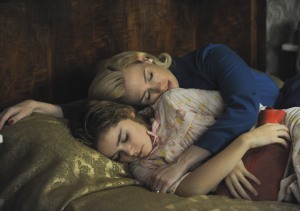 It’s possible I’m imbuing this minor story with too much weight simply because it was the one ray of light in the episode. But unlike Lane’s (and Don’s, which we have yet to hit on), it at least displayed a range of emotions. People sometimes connected, and sometimes disconnected. As opposed to the rest of “Commissions and Fees,” and most of “The Other Woman,” which both decided from the start to stab us in the gut and then chugged unrelentingly towards that goal.
It’s possible I’m imbuing this minor story with too much weight simply because it was the one ray of light in the episode. But unlike Lane’s (and Don’s, which we have yet to hit on), it at least displayed a range of emotions. People sometimes connected, and sometimes disconnected. As opposed to the rest of “Commissions and Fees,” and most of “The Other Woman,” which both decided from the start to stab us in the gut and then chugged unrelentingly towards that goal.
Since I brought up Don, it seems a good time to ask what you guys thought about this latest step in his professional renaissance – specifically about the blunt, snarling pitch-cum-lecture he spews at the Dow Chemical team. Weiner Junior wasn’t the only one laying it on a bit thick this week, was he?
Les: We certainly seem to be in the midst of a Draper renaissance over the last few episodes. First he’s giving a speech to whip the troops into order, then he’s delivering a vintage Draper pitch not seen since the days of Sterling Cooper, and now he’s aggressively going after the “Moby Dick” of clients, the company whose head blatantly told him that he couldn’t be trusted. (And when the Devil himself tells you you’re untrustworthy, you tend to listen.) He certainly does lay it on thick, telling them that fifty percent of the market share isn’t enough and that he thinks their firm can make Dow dominate the chemical market as much as London Fog* dominated the overcoat market.
*London Fog. Bert Cooper was right, that’s a great name.
Unlike Lane’s decisions, this one I felt was very much in-keeping with Don’s reaction to the way things have been going. With Lane’s financial ruin, Peggy’s departure from the office and Joan’s drastic measures to secure the account, it makes sense that Don would feel he had to do something to exercise control over the agency’s future again. And while it certainly wasn’t a subtle speech – once again Don’s spelling out the show’s themes for us all to read – it was a speech he needed to give, as much for his own benefit as Ed Baxter and the Dow executives. (I also very much enjoyed the classic Sterling one-liners Don’s new fire inspired: “The guy who got hard at the word ‘no.’ I miss that guy.”)
The question now of course is what Lane’s passing does to that reawakened fire. Don certainly didn’t think what Joan did was the right thing for the agency, what does he do now that a man is dead? Is it more fuel for the drive to succeed and make it all mean something, or a realization that it’s not worth the cost? Given the way things are going this season, I’m inclined to believe the former.
Cory: Don’s certainly trying to re-exert control, not just over the agency, but his life. His speech to Baxter and company was impassioned and personal, but sort of uncomfortable to watch because so. Don has experienced some big highs and even bigger lows recently, but he quickly realized that it wasn’t enough. It’s never enough. We’ve talked a lot about how at the beginning of the season, Don seemed content and maybe even a little happy doing next to nothing. I’m not sure if it was Megan quitting, Ginsberg challenging him or a combination of both, but lately, Don’s snapped out of his lull and perhaps taken his inspiration and motivation too far. There’s no mention of Peggy this week, but surely that’s still eating him, and he’s clearly still upset over what happened to/with Joan. Thus, he’s filling the void left by the things he cannot control with things he believes that he can: getting people off with his pitches.
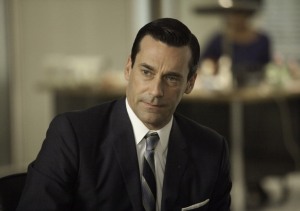 I’d say that Don is in danger of flaming out because he won’t stop to analyze the challenges he’s faced recently, but Don Draper never stops. If something else blows up, Don will just push forward. That’s what he does. As he told Lane, he’s started over a lot, and he’ll do it again. What I’m worried about is the wreckage that he could leave in the wake of the new beginning.
I’d say that Don is in danger of flaming out because he won’t stop to analyze the challenges he’s faced recently, but Don Draper never stops. If something else blows up, Don will just push forward. That’s what he does. As he told Lane, he’s started over a lot, and he’ll do it again. What I’m worried about is the wreckage that he could leave in the wake of the new beginning.
Les: Wreckage does tend to be what Don Draper leaves when starting over, particularly in finales. In season three’s he blew up the agency to create SCDP, in season four he blew up his relationship with Dr. Faye to marry Megan – what’ll he do next in the interest of self-growth? To paraphrase his Jaguar pitch, what price would we pay? What behavior would we forgive?
We’ll have to see which of the tectonic plates are shifting next for our hero. There’s a marriage on rocky ground, a daughter coming to troubled maturation, a protege abandoning him and an agency driven to increasingly more desperate moves despite its success, there’s plenty of powder kegs to light off. And personally, I can’t wait. Until next week, when “The Phantom” brings this season to a close!


